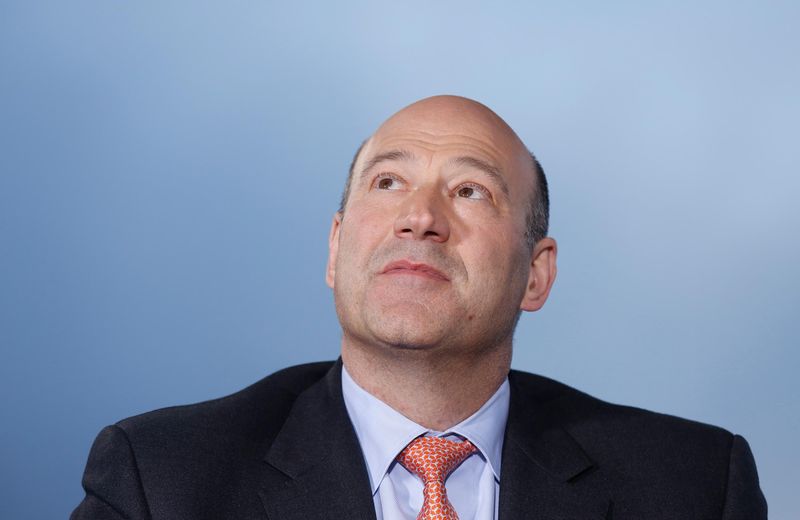Cohn Tells World Leaders U.S. Will Exit Paris Climate Deal

EghtesadOnline: President Donald Trump’s chief economic adviser, Gary Cohn, emphasized to foreign climate and energy officials on Monday that the U.S. still intends to withdraw from the Paris climate accord, three people familiar with his remarks at a private breakfast said.
Speculation that Trump would reverse course and remain in the Paris deal was heightened after the European Union’s climate chief, Miguel Arias Canete, said Saturday in an interview that the U.S. had signaled it wants to seek new terms from within the agreement, rather than withdraw outright and then renegotiate. But White House officials have forcefully pushed back against the idea.
According to Bloomberg, French President Emmanuel Macron said before a meeting with Trump on Monday that the two leaders would talk about the accord. Macron is a leading proponent for the agreement. Trump didn’t respond when a reporter asked if he would stay in the deal.
One person familiar with the president’s thinking said that the accord would have to be significantly changed for the U.S. to remain. In his June 1 speech withdrawing from the deal, Trump complained about U.S. contributions to a fund intended to help developing countries mitigate the consequences of climate change and about implied limits on U.S. fossil fuel production and industrial activity. He also raised “serious legal and constitutional issues.”
“I’m willing to immediately work with Democratic leaders to either negotiate our way back into Paris, under the terms that are fair to the United States and its workers, or to negotiate a new deal that protects our country and its taxpayers,” Trump said in his June 1 speech.
The White House Press Secretary, Sarah Huckabee Sanders, said Saturday that his position hasn’t changed. Trump “has been clear, U.S. withdrawing unless we get pro-America terms,” she said on Twitter.
Cohn had breakfast with energy and climate ministers in New York, at the annual United NationsGeneral Assembly. He told them that the U.S. could remain in the Paris deal under the right conditions, but that they don’t exist yet, according to one person with knowledge of the meeting. He led off by emphasizing that Trump has made it abundantly clear he will withdraw unless the U.S. wins more favorable terms, the person said.
A senior White House official said in an email that Trump’s position was made very clear in the breakfast. Cohn and the foreign officials discussed how their countries can cooperate to provide affordable, reliable energy to help reduce global poverty, and the importance of new technology under development in the U.S. including highly efficient fossil fuels, the official said.
The person familiar with Trump’s thinking said he doesn’t expect to cut a deal to remain in the Paris accord while he’s at the General Assembly this week or anytime soon, and that it’s not a particularly hot topic within the White House at the moment. Other countries have not approached the U.S. with proposals to keep the world’s second-largest emitter of carbon pollution in the agreement, the official said.
Senate Democratic Leader Chuck Schumer and House Democratic Leader Nancy Pelosi told Trump his decision to withdraw from the climate accord is a sticking point for bipartisanship. Trump didn’t indicate any change would be forthcoming in his decision, said two Democratic aides.
Trump has taken issue with the Green Climate Fund, a UN’s climate program that helps developing nations adapt to climate change, that Trump said was "costing the U.S. a vast fortune." Obama pledged $3 billion in U.S. payments over four years, and made $1 billion of those before Trump took office. Trump pledged to halt that funding.
While the Paris deal doesn’t impose specific restrictions on coal mining or oil drilling, it would require that the U.S. lower its emissions and so use less coal and oil. Trump, in his remarks, cited a study that said "onerous energy restrictions" included in the agreement would result in as many as 2.7 million lost jobs by 2025.
Trump’s reference to "serious and constitutional issues" with the deal is believed to stem from a 213-year-old Supreme Court case that was a major point of contention in White House debates over continued membership in the international climate pact. The court ruled that federal policies should be interpreted, when possible, so they don’t conflict with international laws. Paris opponents say environmentalists could use the agreement to challenge regulatory rollbacks in U.S. courts.


